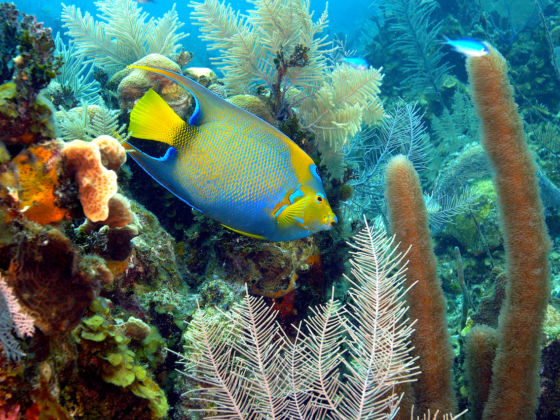Nowadays it seems like we only hear disappointing news about our environment, the increase in endangered species, and the steady withering of our most cherished natural habitats. Thankfully, it’s not all doom and gloom. This week the Belize Barrier Reef, the largest barrier reef in the Northern Hemisphere, was removed from the United Nations list of endangered world heritage sites. UNESCO, the UN’s educational scientific and cultural agency, voted Tuesday to remove the reef from its list of threatened sites because it no longer faces immediate danger.


Finally Some Good News: Belize Barrier Reef No Longer Endangered
When the reef was initially added to the list in 2009, the United Nations cited mangrove cutting and excessive development as the cause, also expressing concern about oil exploration. Since 2009, however, Belize’s government has instituted a moratorium on oil exploration around the reef, and protections for the coastal mangrove forests. While the threat has been mitigated, experts are still cautious about the reef’s future, especially when it comes to global ocean warming.
Scientists have observed signs of coral bleaching on the Belize reef, which occurs when unusually warm water causes the corals to lose plantlike organisms that help keep them alive. Almost a quarter of the reef was affected by coral bleaching in 2015 and 2016, according to a report by the Healthy Reefs for Healthy People Initiative. The death of the world’s coral reefs could also spell the end for much of the ocean’s most colorful life, as coral reefs are home to more than a quarter of marine fish species.
For now, though, we can celebrate this small environmental victory.
H/T: The New York Times